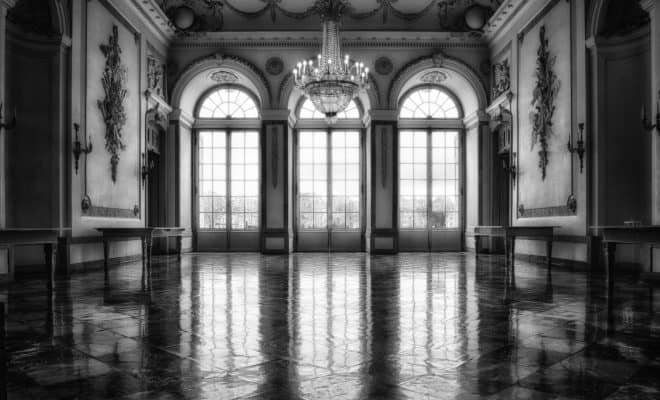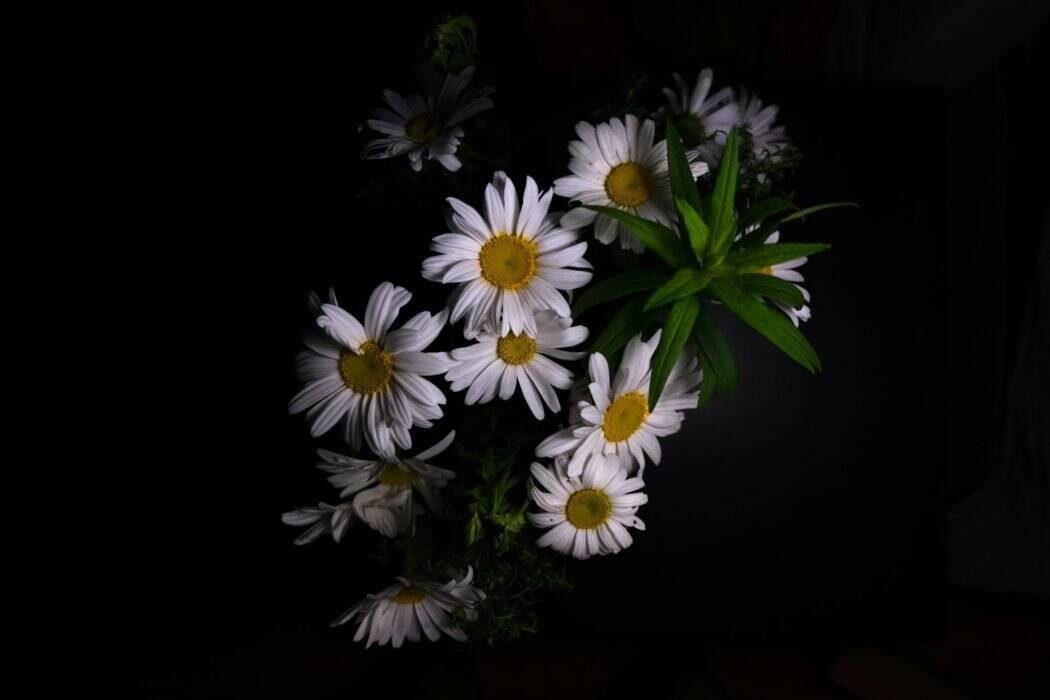Cascade Falls – Part One

The light from the lamp flooded over the paper on which she wrote, keeping shadows at bay while the night crept on. Her eyes threatened to shut of their own accord, and fatigue settled into her bones. At times her vision blurred. She found it hard to focus on her task. Every scratch of the pen only emphasized her weariness. Bird songs drifted in from the open window at her back. They drew her into sleep, if only for a brief moment before she fought against it, and continued writing.
Her auburn hair fell across her shoulders like hanging vines, tangled and in disarray. The soft glow of the lamp highlighted her face. Dark circles beneath icy blue eyes, bright and deep. Lips tightened in a thin line. Skin pale as pale can be, almost sickly but not quite.
She glanced away from the letter. Her desk was piled with crumpled papers. Several books stacked atop each other. It had been a long, arduous development over the course of the evening. Finding the right words had not been easy, and it wore her down—whittled her to almost nothing. She sighed, giving life to the tired she felt. Then she read her work, one last time.
Dear Sovereign,
I write this as a plea. I understand you believe my father to be a traitor, and that I cannot contest. The evidence against him is overwhelming. As such, I ask that whatever sentence you grant, it passes only to him. I do not wish further retribution on my family. Enough blood has been spilled on all accounts.
This war has torn this country apart. Friend against friend, sibling against sibling. Our people will not last if this confrontation carries on as it has. Cascadia must be allowed to thrive. I believe this country is strong enough to survive, but not if we pillage and murder with wild abandon. I know you to be a good man, Riftken. Please remember what we were before we lose everything. Stop this madness, I beg of you. If not in the name of your nation, then in the name of the love we used to share, and in some ways, still do.
The cost, otherwise, is far too great to imagine. If this letter is not enough, then perhaps I shall travel to your city of Ethelas.
On the honor of House Credence,
Wierna
She folded the letter and slipped it into an envelope, sealed with the sigil of her house. Then she cradled her head in her hands, marred with ink stains. After a short period of silence, a knock sounded at the door.
“Come in,” she said, her voice weak and rasped. A large man entered, donning full war gear. His armor was silver and shined bright, even in the dull light. He bore no helm nor carried any weapon. His fiery red hair cropped short. His face was long and narrow, nose broken one too many times, and a scar slashed across his upper lip. He stared at her, green eyes sheltered in the dark.
“Are you alright, Lady Wierna?” he asked. The deep baritone of his voice was gentle.
“I am well, Henden. Would you do me a small favor and deliver this letter to Ethelas?” Slowly she rose from her seat, envelope in hand. The effort nearly caused her knees to buckle. She felt Henden’s hands grasp her own, firm but kind.
“Thank you,” she muttered. “If you please, Captain.”
He hesitated, then gave a perfunctory nod. “As you wish, my lady.”
They exited the room together into an expansive hall lit by the arrival of an indigo morning. Early yet. To their left, placed high on the stonework, was a large glass panel that seemed to twist the coming light. This reached the end of the hall. And to their right, large paintings done in the likeness of her forebears. Men and women who had worn the titles of lord and lady. The last of these paintings, as they neared large wooden double doors, was a depiction of her father. A bearded man, with cold grey eyes and a stern look about him. She did not favor him much, and remembering their tumultuous history, she glanced away and ahead.
The double doors creaked and groaned against Henden’s strong push. They moved into the Great Hall, everything shrouded in quiet save for the muted calling of birds and clanking armor as Henden walked. Her attendants would not be expected to be awake at such a premature hour. She often enjoyed being isolated from all the noise and chatter, for as long as that lasted. And Henden was not much for idle conversation. A distinct quality about him she treasured. That and his unflagging loyalty.
The Great Hall followed a cylindrical design; the ceiling above sloped to either side, the stonework there crafted into several images involving past wars and emerging triumphs, though many of the details had been withered away by time. Massive pillars spread out evenly, circular and tall, like the thick trunks of oak trees. The floor was a patterned marble, swirls of white like storm clouds against a darkened grey. Wierna could see their reflections as she looked down. Shades of themselves mirroring their movement. In front of them seated a throne, cushioned with a maroon plush, its trimmings and legs made of solid gold. She never sat upon it, nor did she ever wish to do so. They stopped abruptly then. Her silk nightgown whirled across the ground as she turned to Henden.
“I think you ought to make haste, Captain. Time is of the essence here.”
“My lady,” he said, placing a fist upon his heart and bowing low. He rounded about and marched at a brisk pace out of the hall, and as the last echoes of the double doors slamming shut faded, she slumped where she once stood. Nausea threatened to overwhelm her. Bile climbed her throat and she swallowed it, trying to maintain some semblance of control. This illness would soon claim her, she knew. Resolute, so she seemed on the surface, she was frail as brittle glass beneath, and one day, maybe soon, she would break.
Morning grew into the afternoon hours. Sunlight streamed through the windows of the dining hall where she ate her lunch alone on a wooden bench nearly the length of the hall itself. Attendants scurried around her, performing all manner of chores. One of them approached her now. Theresa, she was named, a dainty figure with a rush of brunette hair and a small oval face. Her garments were of the traditional black and grey, the colors of Wierna’s house. A white apron tied around her waist and draped over to just above her knees.
Her eyes beheld kindness, their hue much like that of fresh grass.
“Would there be anything you need, m’lady?” she asked, her voice lilting with a hint of an accent.
“No, Theresa. Thank you. Would you like to accompany me?” Wierna smiled, yet it lacked its usual strength. Theresa returned the smile with a grin of her own and settled next to Wierna. She bristled. Slight apprehension taut in her shoulders.
“Are you certain, m’lady? I’m not sure if it’s proper…”
Wierna waved off her concern. “Proper is as I say it is. Aside from this, war is brewing. I’d say we all earned a break from such frivolous formality, wouldn’t you say?”
“My lady,” interjected a voice from behind the pair. This was a man’s, and it seeped with worry. They both faced him.
“What is it, Gared?” asked Wierna. Her tone suggested a demand for answers rather than a request.
“It’s Henden, my lady. He’s been hurt something fierce. Bandits, most likely. Took a couple arrows to the chest.” His facial features tightened as if he were pained.
“Where is he now?” She rose from the bench. Gared did not reply, opening his mouth only to snap it closed.
“He’s dead, my lady.”







